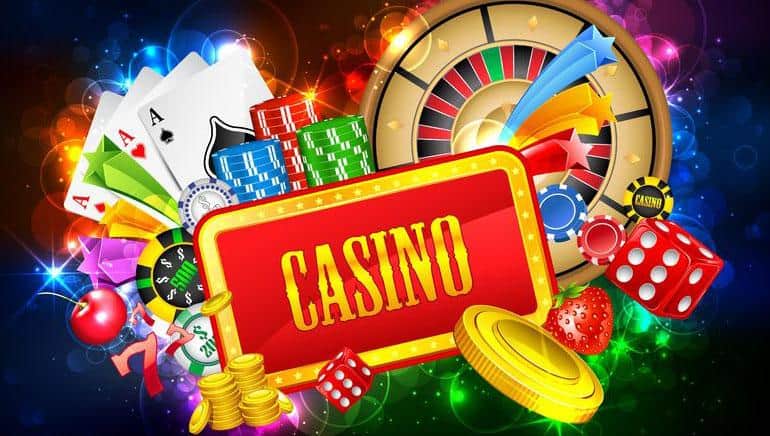
Machine gambling has become a popular activity in various cultures throughout the world, going beyond the limits of mere amusement. With the bright illuminations and sounds of gaming establishments to the rising fame of online services, electronic slot games offer a distinct blend of chance and thrill that captivates countless players. This type of betting is not just about leveraging sticks and viewing reels turn; it mirrors underlying societal views toward danger, luck, and the quest of riches.
As we delve into the importance of slot gaming, we find that it functions as more than a recreational activity. It functions as a bridge between people, a form of escapism, and sometimes a source of motivation for a lot of people. The appeal of hitting the big win echoes across different audiences, often symbolizing aspirations of wealth and leisure. By studying the progression of video gambling and its place within diverse societies, we can more clearly grasp its effect on modern traditions and the principles that it encourages.
Historical Background of Video Gambling
Video gambling has its roots in the end 1800s century when the initial mechanical video machine, known as the Liberty Bell, was invented by Charles Fey in 1895. This machine featured three rotating drums and a simple winnings system based on the combination of icons, primarily centered on horseshoes, diamonds, and the famous Liberty Bell. The rise of this invention marked a significant change in gambling, making it more available and attracting a wider group who were drawn to the element of luck without the need for complicated strategies or abilities.
As slot machines gained fame, the early 1900s century saw the growth of numerous styles and arrangements. The introduction of electronic slot devices in the 1960s added a new layer of thrill with more captivating visuals and audio. This evolution coincided with the broader societal transformations and the growth of regulated gaming in different states and nations. Slot machines moved from being only mechanical machines to turning into part of the casino environment, appealing to a segment that sought amusement and recreation in gaming.
The late 1900s century and initial 2000s century brought about yet another transformation with the advent of online technology and virtual gambling. Virtual video machines became a mainstay of online casinos, allowing players to experience the thrill of slot gaming from the comfort of their houses. This digital transition influenced cultural views of gambling, making it not only a physical but also a virtual activity. The growing acceptance of gambling in society has placed slot machines as a significant societal phenomenon, reflecting shifting attitudes towards risk, chance, and amusement.
Societal Impact on Communities
Slot gambling has woven themselves into the fabric of modern culture, shaping community connections and conduct. In numerous communities, these machines serve as meeting places where individuals come together, encouraging a sense of belonging and excitement. The vivid lights and engaging sounds of these games create an environment that draws in not just experienced gamblers but also casual players seeking entertainment. This openness allows diverse groups of people to share experiences, ranging from happy wins to the camaraderie found in collective defeats.
The representation of gambling in the media and pop culture has also played a significant role in affecting societal perceptions. Movies, television shows, and ads often romanticize the allure of hitting the jackpot, leading to a society where this activity is viewed as an exciting and flashy pastime. This representation can lead to an growing fascination with gambling, especially among younger generations, shaping their attitudes and ultimately affecting their involvement in gaming activities.
However, the cultural significance of slot gambling is not without its issues. As it gains popularity, issues about addiction and safe gaming practices rise. Awareness campaigns and programs aimed at educating players about the risks associated with gambling have become essential components of the conversation surrounding slot machines. Balancing the entertainment value of slot gambling with the potential for adverse effects is crucial, prompting ongoing discussions about its role within communities and the responsibility that comes with its enjoyment.
Cognitive Factors of Video Gambling
Playing slots is deeply anchored in psychological principles that can substantially affect participant actions. One fundamental aspect is the rush of unpredictability that comes from the fortuitous nature of gaming machines. This chance creates a feeling of eagerness, as gamblers anticipate likely wins. The sporadic reinforcement pattern, where gamblers obtain prizes at variable times, can lead to continued engagement, often causing prolonged play sessions despite the odds being stacked to them.
Furthermore, the design features of gaming devices contribute to their mental appeal. Vibrant lights, captivating sounds, and aesthetically stimulating images all serve to heighten the physical engagement of playing. These features can evoke a feeling of elation and release from reality, which many gamblers find appealing. The captivating atmosphere created by modern slots leverages psychological responses, drawing players into a condition that can fuzz the lines between recreation and compulsive gambling.
In conclusion, the social dimension of slot play is significant. Many gambling venues are structured to promote social interaction among players, facilitating a communal setting. This interaction can boost the pleasure of playing, making it about the personal experience of betting and more about shared interactions. However, the attraction of being part of a group can also result in problematic gambling behaviors, as players may feel urge to fit in to community expectations around gambling behavior.
slot gacor